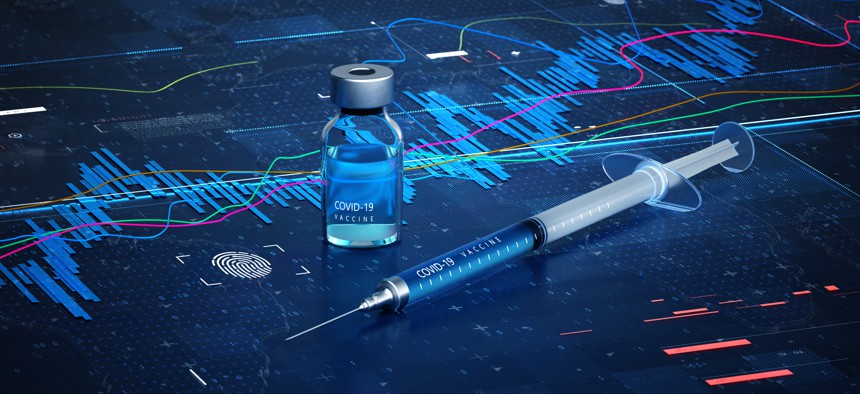Averting the next pandemic with real-time health data

GettyImages/Andriy Onufriyenko
The Center for Public Health Data would aggregate federal, state and local health data and make it accessible in real time so it can be used for decision-making as health threats unfold.
To improve access to federal, state and local health data that can bolster infectious disease intelligence and public health preparedness, Sen. Mitt Romney (R-Utah) has proposed a Center for Public Health Data.
The new agency would aggregate electronic data from public health agencies as well as laboratories, clinics and hospitals and make it accessible in real time so it can be used for decision-making as health threats unfold.
The independent data science agency would sit under the U.S. Department of Health and Human Services, be led by a chief data engineer and align with privacy and security best practices, according to a release.
CPHD would make de-identified data available to all levels of government, hospitals, researchers and the public through an online platform within 24 hours of collection. This single stream of infectious disease health data would streamline “the fragmented and duplicative data management efforts that exist across HHS,” the release said.
“Throughout the course of the COVID-19 pandemic, we have seen how the United States’ public health data reporting has failed to deliver critical and comprehensive information to the American people in order to respond to the pandemic,” Romney said. “We have again seen the shortcomings as monkeypox has started to spread around the country. These failures show the need for reliable, real time data during days of blue-skies so we can better prepare for and potentially prevent major outbreaks.”
The CPHD would also partner with states, localities, and public and private entities to modernize public health data infrastructure, improve interoperability and support information sharing.
Data sent to the center would be related only to community acquired infectious diseases, and it would be de-identified at the hospital or lab before transmission to the CPHD. Rather than making health recommendations, the center could only collect and disseminate high-quality data along with clear and accessible graphics. The center will not collect personally identifiable information, the proposal stated.
"A comprehensive database with this data in real-time from across the United States [will] make infectious diseases spreading in communities visible,” said Dr. Deborah L. Birx, a senior fellow at the George W. Bush Institute and former White House coronavirus response coordinator. “The united single source national database bringing together the private and public sector will transform our ability to respond with an integrated, cost effective whole-of-government support, and bring us into the twenty-first century, ensuring we all survive and thrive the current and future threats.”



